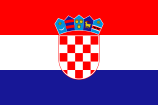The Passport to Croatia: Understanding the Schengen Visa Process
Croatia Visa Guide

Croatia, a country known for its breathtaking Adriatic coastline, rich history, and diverse culture, has become an increasingly popular travel destination in recent years. For many travelers, obtaining a Croatia Visa is the first step to embark on a journey into this European paradise. Given Croatia’s position within the Schengen Area, it’s essential to understand the nuances and specifics of this visa type.
Croatia Visa and the Schengen Agreement
 Croatia is one of the latest additions to the Schengen Area, a zone comprising 26 European countries that have abolished passport and other types of border control at their mutual borders. This agreement allows for unrestricted movement of people within the countries of the Schengen Area. As such, a Croatia Visa is generally consistent with the regulations and requirements of the Schengen visa.
Croatia is one of the latest additions to the Schengen Area, a zone comprising 26 European countries that have abolished passport and other types of border control at their mutual borders. This agreement allows for unrestricted movement of people within the countries of the Schengen Area. As such, a Croatia Visa is generally consistent with the regulations and requirements of the Schengen visa.
Types of Schengen Croatia Visas
The Schengen Area offers various visa types, depending on the purpose of the visit. Whether you are visiting for tourism, business, or studying, it’s crucial to apply for the correct visa type to ensure a hassle-free experience. Explore the different Schengen visa types to determine which one aligns with your travel goals.
- Tourist Visa: Ideal for those wishing to explore Croatia’s picturesque landscapes, historic sites, and vibrant cities.
- Business Visa: Designed for professionals attending meetings, conferences, or other business-related events.
- Student Visa: This is for those seeking to study in one of Croatia’s esteemed institutions. Detailed information on the Student Schengen Visa can help prospective students navigate the application process.
- Transit Visa: For travelers passing through the Schengen Area en route to a non-Schengen destination.
- Official Visit Visa: Catering to official delegations traveling to Croatia for official purposes.
How to Apply for a Croatia Visa
The application process for a Croatia Visa can be streamlined by following a few crucial steps. Here’s a brief guide:
- Determine Your Visa Type: As mentioned above, it’s vital to identify the visa type most suitable for your trip.
- Complete the Application Form: Most of the application processes now happen online, making it easier and more convenient for applicants.
- Gather Necessary Documents: This includes photographs, proof of travel insurance, accommodation details, and other pertinent documents.
- Book an Appointment: Schedule an appointment at the Croatian consulate or embassy in your country to submit your application.
- Attend the Interview: A visa interview might be part of the process. During this interview, you’ll answer questions about your trip, finances, and other related topics.
- Pay the Fee: The visa fee varies depending on the type and duration of the visa.
- Wait for Approval: After submitting your application, there will be a waiting period. Once approved, you’ll be informed, and you can collect your visa.
For a more detailed step-by-step guide, check out how to apply for Schengen.
Benefits of a Schengen Croatia Visa
Obtaining a Croatia Visa in the context of the Schengen agreement comes with several advantages:
- Movement Across the Schengen Area: The visa allows you to travel freely within the 26 countries of the Schengen Area, offering more value and flexibility.
- Lesser Border Checks: Minimal internal border checks make traveling between Schengen countries a breeze.
- Streamlined Application Process: The unified Schengen visa system means that travelers familiar with one Schengen visa application will find the Croatia Visa process familiar.
For those keen on exploring Europe, the Croatia Visa serves as a gateway not just to Croatia, but to the wider expanse of the Schengen Area. It’s a ticket to diverse cultures, historic landmarks, and unforgettable experiences. By ensuring you choose the right visa type and following the application process meticulously, your Croatian adventure awaits!
With these insights and the resources available on VisaEnvoy, travelers can confidently navigate the visa process and embark on their journey to the heart of Europe.
